Building power from the margins to achieve large scale social transformation
How do we use organising strategically in our activism and movement building? How do we develop a practice of transformative organising, from organising in silos to building long term alignments, from fighting short term campaigns to advancing a long-term agenda, from applying narrow approaches to power to an expansive one, from protesting from the outside to building governing power? This training designed and delivered by the European Community Organising Network (ECON) and part of the Ulex Programme will help you address some of these challenges by developing your competencies for Transformative Organising.
What is Organising?
“Community organising” is a term on more and more people’s lips these days. But what is it? And how can it be a part of strategies for large-scale social transformation?
This training will focus on one particular organising tradition: Transformative Organising. Compared to some others, there has been less written about this approach – in part, because it is an emergent tradition where many of the practices are still being defined. However, early thinking on this practice has been defined by the US-based organiser Steve Williams, some of which he elaborated in the essay Demand Everything: Lessons from the Transformative Organising Model.
In Europe, work is being done by several people and organisations to define this practice for the European context. Echos of this approach – including a more expansive view of power and adopting a longer strategic time horizon – are found in ECON’s publication, The Power of Organising: Stories from Community Organising Campaigns Across Europe. And a newly forming, Berlin-based organisation called Organising Re:Generation, is attempting to develop a systematized training approach to support the growth of this tendency.
This training will be both rooted in the theory of Transformative Organising, as well as a hands-on and very practical approach to how the skills of organising can be applied in the field. You don’t need to have had formal training in organising to get a lot out of this course. And if you are already a trained organiser, this training is designed to help push your thinking about your practice further. Together, we will look at how Transformative Organising can be applied to building power within communities that are “closest to the pain” of our unjust system, and how we can build the power we need to achieve large-scale social transformation from below.
We will explore ideas and practices related to:
The aims of the training are:
Through a blend of participatory education and immersive learning you will:
Who is it aimed at?
Anyone involved in socially engaged action addressing ecological, political and social justice issues. We embrace a broad definition of activism, including: Resistance – action preventing further damage to ecosystems and social justice; Renewal – action focused on developing and creating alternatives for healthier societies and communities; and Building Resilience – action supporting increased resilience in communities to weather the uncertain times ahead.
In the solidarity economy:
(See details of our approach to radical economics here)
Contact us
to apply
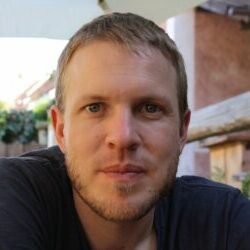
Location:
Steve has 20 years of experience working as a community, union, and political organizer in both the United States and Europe. He currently lives in Prague, and works on several trans-European and transatlantic organizing initiatives. Tracing his roots to the US labor movement, he made the transition to political organizing in 2010 when he went to work for the Working Families Party (WFP). In 2014 he moved to Europe, but he continues to support US-based organizing at the WFP, and has also taken a leadership role in developing the European Community Organizing Network, a hub for the community organizing sector in Europe. He has developed a community of practice with the organizers and movement educators of the Grassroots Power Project, a movement support organization founded with the goal of shifting community organizing practice towards less-siloed, more transformative approaches. In this role he serves as a link between the US and European organizing sectors.
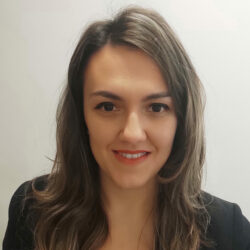
Location:
Gorana is an educator and organizer from Serbia part of the training team of the European Community Organizing Network (ECON). She learned community organizing at the Harvard Kennedy School of Government Executive Education course “Leadership, Organizing and Action” by Marshall Ganz. Since then, she has held over 30 community organizing trainings in various areas, such as climate justice, women rights, patients’ rights, and democracy. One of the campaigns in which she was part of was “Bravo za mame” (eng. Bravo for mums) which fought for the law amendment to allow all mothers regular maternity benefits in Serbia. She is also a trainer of the UNICEF UPSHIFT program, as well as member and organizing trainer with the Leading Change Network (LCN).
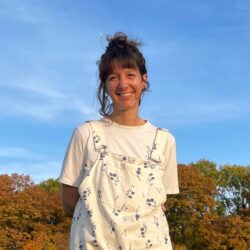
Location:
Masha is a social movement organizer and educator, originally from Bosnia and Herzegovina, raised in the United States and now calls Berlin home. Over two decades, she’s organized fast food workers in the Fight for $15, youth for truth and reconciliation in the Balkans, transit riders in NYC, Berliners for refugee rights, and communities for global economic trade justice. Masha organizes the Just Transition campaign with the European Community Organizing Network (ECON) and supports the development of new organizing leadership with the Leading Change Network.
How do people find moral resources to build courage in the face of injustice? How do we create resilient structures of belonging that build our movement’s capacity? How do we build power to achieve our goals? Common conditions prevail, but these are the questions that she explores.
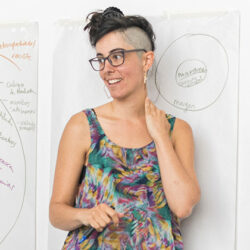
Location:
Neus has been passionate about education since she was 8 years old and went dumpster diving in teachers’ recycling bins for worksheets to help other students learn at break-time. They moved from Castellon to Scotland to study Community Education, with a focus on youth work and adult education, where she co-founded The New Leaf Co-op, a successful workers’ co-op in Edinburgh. Whilst there Neus developed their understanding of how productivity meets good working conditions meets overturning the food system meets resourcing the commons with resilient and democratically managed capital. These passions now underpin her multiple roles at Ulex; from team culture and coordination to training and writing funding applications.
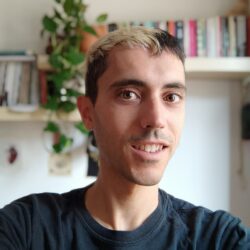
Location:
Cori is an anarchist activist based in Catalonia. He started getting involved in radical social movements when he was a teenager. He is passionate about helping the community in topics such as housing welfare, squatting, neighbourhood mutual aid networks, and anti-oppression and queer-feminist movements. During the last years, he has been taking courses on group facilitation to increase his knowledge on human relationships and accompanying processes for both groups and participants. He is currently collaborating with Ulex as a course organiser and facilitator.
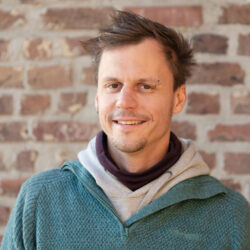
Location:
Alex has been fighting in the climate justice movement for many years with direct actions. He organized, mobilized and communicated many large protests against lignite mining in Germany as the Hambach Forest occupation or in the village of Luetzerath. Currently, he is building water alliances across Europe. With the kitchen collective Mobkit, he is cooking for action camps, protests and solidarity campaigns across Europe. He sees good, strengthening food and a visible and solidarity-based cooking and care structure as an essential part of transformative political work.


Location:
…
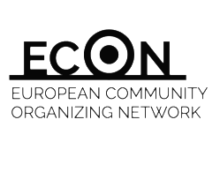
Location:
ECON is a hub for the community organizing movement and supports organizers to build an effective counterbalance to the rise of right-wing extremism, racism, and nationalism in Europe. ECON serves as a hub for the community organizing movement across Europe with a focus on developing the craft of organizing through training and mentorship, technical assistance, and by creating a space for organizers from different countries to collectively develop their strategic practice.

Location:
An Maeyens (she/her) is a facilitator and trainer with over two decades of experience in grassroots movements. She specialises in creative, inclusive agenda design and brings deep expertise on group culture, power dynamics, and transformative learning. Starting of in the anti-globalisation movement she has trained thousands in civil disobedience, supported international coalitions, and developed multilingual training programmes and toolkits. Her work spans movements, cultures, and countries, guided by a commitment to care, accessibility, and leaderful organising.

Location:
An Maeyens (she/her) is a facilitator and trainer with over two decades of experience in grassroots movements. She specialises in creative, inclusive agenda design and brings deep expertise on group culture, power dynamics, and transformative learning. Starting of in the anti-globalisation movement she has trained thousands in civil disobedience, supported international coalitions, and developed multilingual training programmes and toolkits. Her work spans movements, cultures, and countries, guided by a commitment to care, accessibility, and leaderful organising.

Location:
Ari’s activism began in 2002, at age 16, as a Bosnian refugee in Canada, where they founded and coordinated a group for LGBTIQ high school students and allies. They were a co-founder and leader at kolekTIRV in Croatia and Trans Network Balkan, involved in community organizing, advocacy, program management, team coordination, capacity building, education, media work, campaigns, events, fundraising, etc. In 2024, they joined the Supervisory Board of the Croatian Trade Union Collective of United Precarious Workers and Activists (SKUPA).
Beyond the Balkan region, Ari served as a Board member at Transgender Europe (TGEU), where they held roles as Secretary, Treasurer, and later Co-chair. They have also been a trainer with the Center for Artistic Activism and served on the Advisory Committee and since 2022 as a Community Care Facilitator at FRIDA — The Young Feminist Fund. Since 2024 they are the Operations Manager at Global Philanthropy Project.

Location:
Sergio (all pronouns) was born in Romania and migrated to Germany in the early 2010s. In the past, he was a social worker with homeless people and a social consultant for Eastern European migrants for various organisations. Trained as a filmmaker, he spent two years making a documentary about the ‘civic reawakening’ in Romania and the waves of protest it brought with it. In connection to this, Sergio is currently co-steering the development of an online open-source participative knowledge production platform on activism in Romania. Over the past nine years, Sergiu has offered his skills to various journalists, grassroots collectives and campaigns, mostly working within the labour rights, climate justice, international solidarity and anti-authoritarian movements in Germany and Romania. Nonetheless, his biggest focus since 2020 has been his work as an organiser with the anarcho-syndicalist Free Workers Union, where he focuses mostly on organising Romanian migrant workers on construction sites, in factories and in the agricultural field.

Location:
Linzy Na Nakorn is a movement director, politicised somatics practitioner, community organiser and facilitator. For the past decade she has been facilitating movement, body work and creating theatre, dance and participatory performance that advocates for and organises with communities in pursuit of housing, disability and racial justice. Her movement practice focuses on trauma-informed approaches to building resilience, capacity and joy via way of the body for personal, interpersonal and community sustainability. Linzy was a Co-Director of The Big Ride for Palestine in partnership with The Gaza Sunbirds, Native Woman Ride and Middle East Children’s Alliance; using cycling as a tool for mobilising active solidarity and in support of campaigning for the rights and self-determination of the Palestinian people. Linzy is part of a UK network of activists and artists advocating for Radical Care – supporting organisations, researchers and institutions to work towards system change in societal approaches to labour, leadership and access.

Location:
Jeroen (he/him pronouns) has been involved in grassroots social movements for more than two decades now, starting back when he was fifteen. Throughout the years the fights for “climate justice” and “migrant justice” have been consistently on top of the list of struggles that make his heart beat faster. A key transformative moment for Jeroen was reading Paulo Freire’s Pedagogy of the Oppressed. Freire’s revolutionary pedagogy gave him a language to support the creation of emancipatory learning environments, rooted in a desire for collective liberation. Jeroen has also been exploring in depth Boal’s Theatre of the Oppressed and Joanna Macy’s The Work That Reconnects among other methodologies to build his trainer’s toolkit. Inspired by the liberatory possibilities of these traditions, he started an organization with a friend, LABO vzw, based in Belgium, where he has worked as a trainer and campaigner between 2013 and 2023.

Location:
Ella brings more than 10 years’ external experience working with not for profit and community based organisations across diverse themes including: advocacy for migrant communities; local community engagement in national policy making; and structural relationships between poverty and disenfranchisement, and education and poverty. Immersed in critical theory in her early 20s she brings a holistic and questioning approach, and is passionate about systemic solutions that centre relationship and interconnection between ecology and society. A long standing member of the collective, Ella has been part of the core team since the inception of the Ulex Project. Her work bridges facilitation, developing project partnerships, governance, strategy, operations, and project and programme evaluation. She has developed and overseen more than 70 partnerships with a range of different actors across European social movements.
Ulex: Latin (argelaga Catalan, gorse English) noun:
1. A thorny-evergreen flowering shrub, with a high capacity for regeneration and resilience. Its seedpods open in contact with fire and it reshoots from charred stumps. A successionary plant that grows well under challenging conditions. It improves soil fertility through nitrogen fixing, preparing the way for renewed biodiversity.
2. A traditional choice for igniting fires. Burns hot and bright.
3. A networked project adding nutrition and fertility to European social movements through training and capacity building. It kindles the realisation of social justice, ecological intelligence, and cognitive vitality.